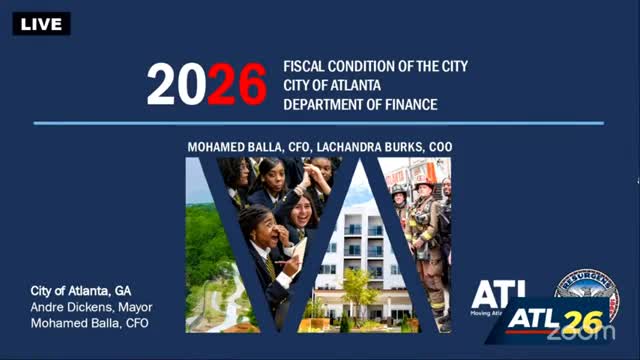Article not found
This article is no longer available. But don't worry—we've gathered other articles that discuss the same topic.
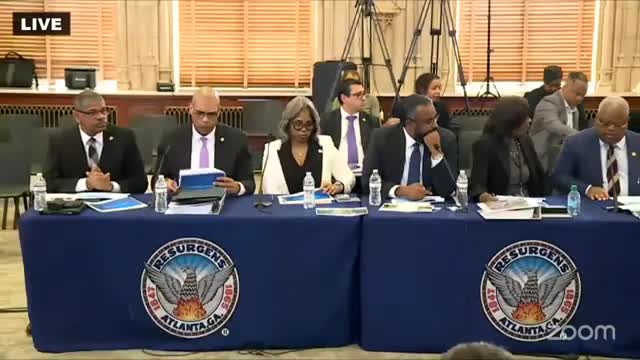
City treasury reports $7.5 billion outstanding debt and $2.12 billion in cash and investments; ratings remain strong
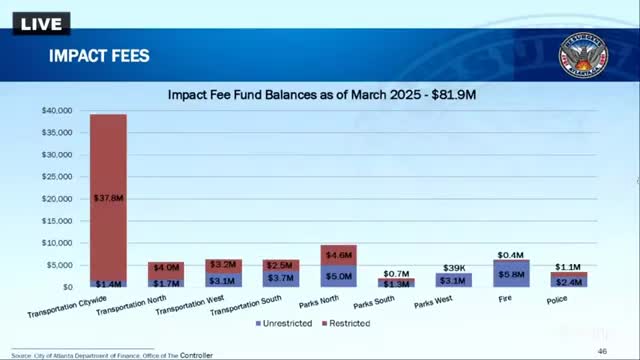
City finance staff report $81.9 million in impact‑fee balances and $63.9 million in trust funds
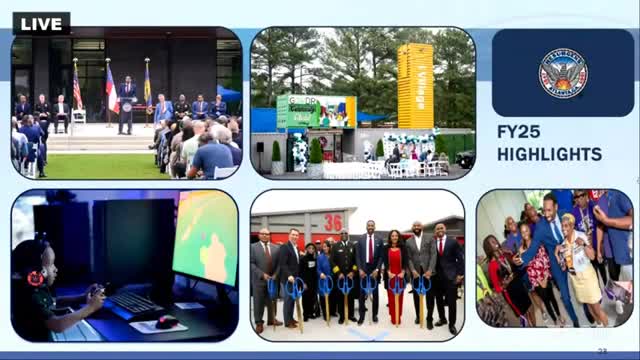
Atlanta budget plans personnel increases and full cost of compensation study; vacancy review board to limit backfills
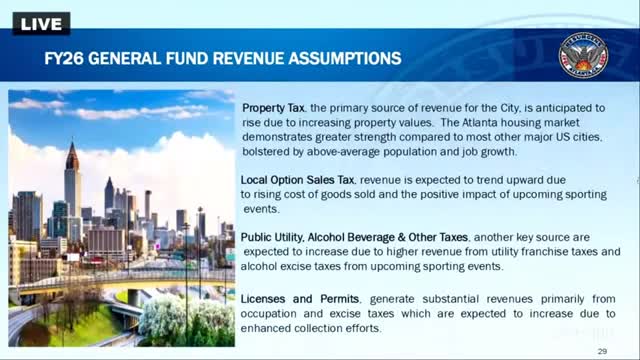
Atlanta projects property‑tax growth and modest FIFA windfall while cautioning on economic risks
